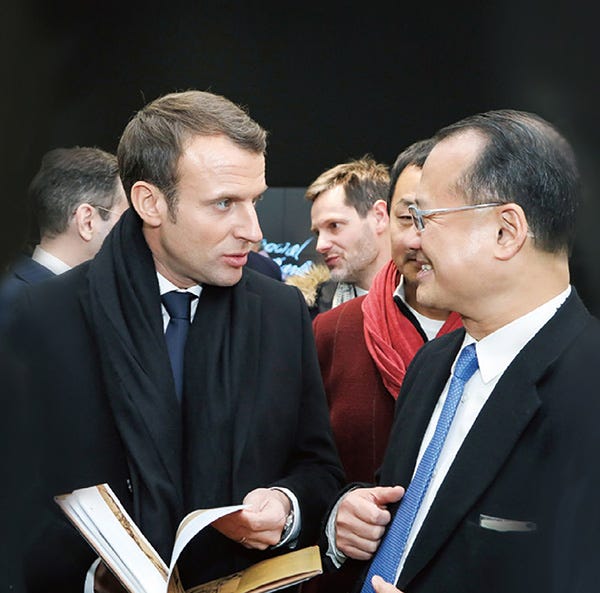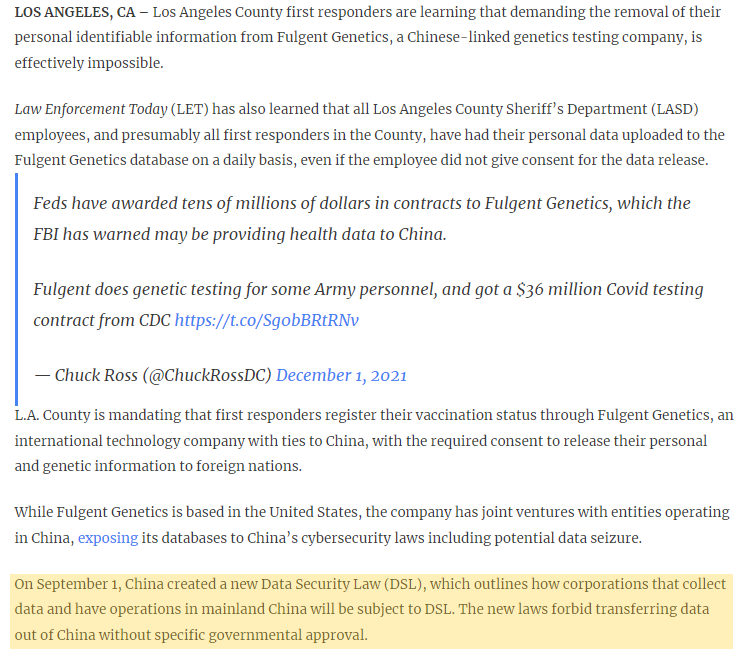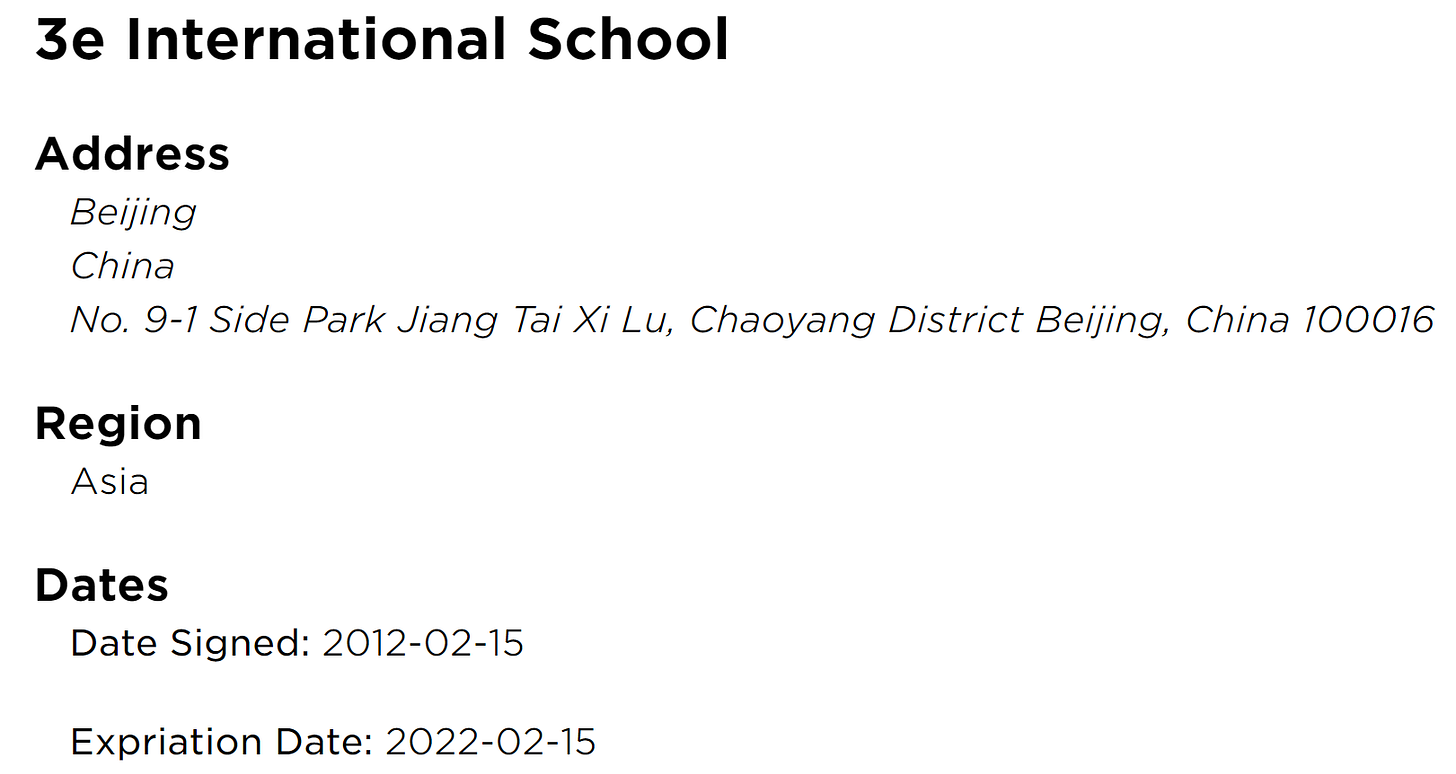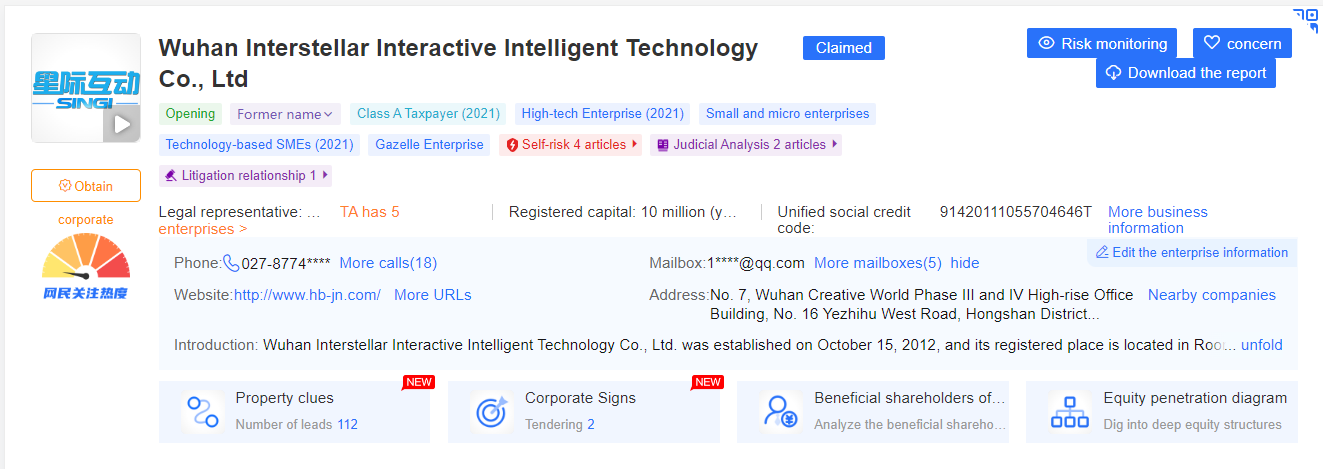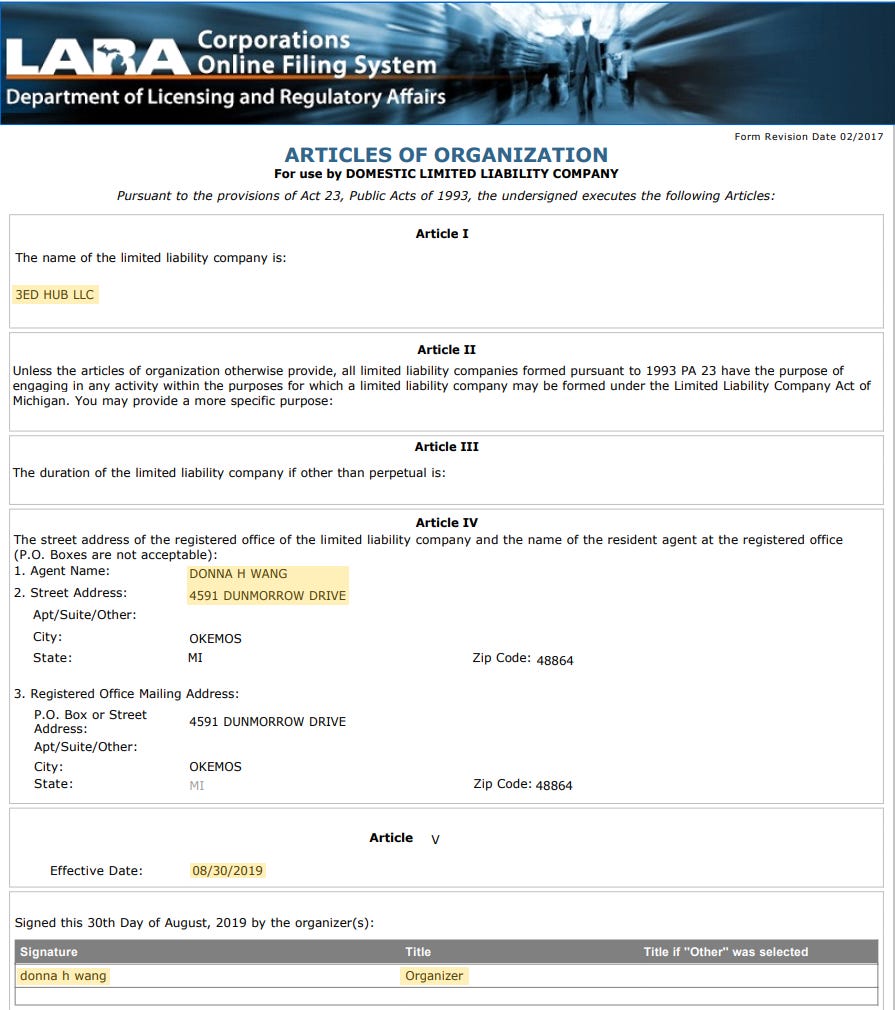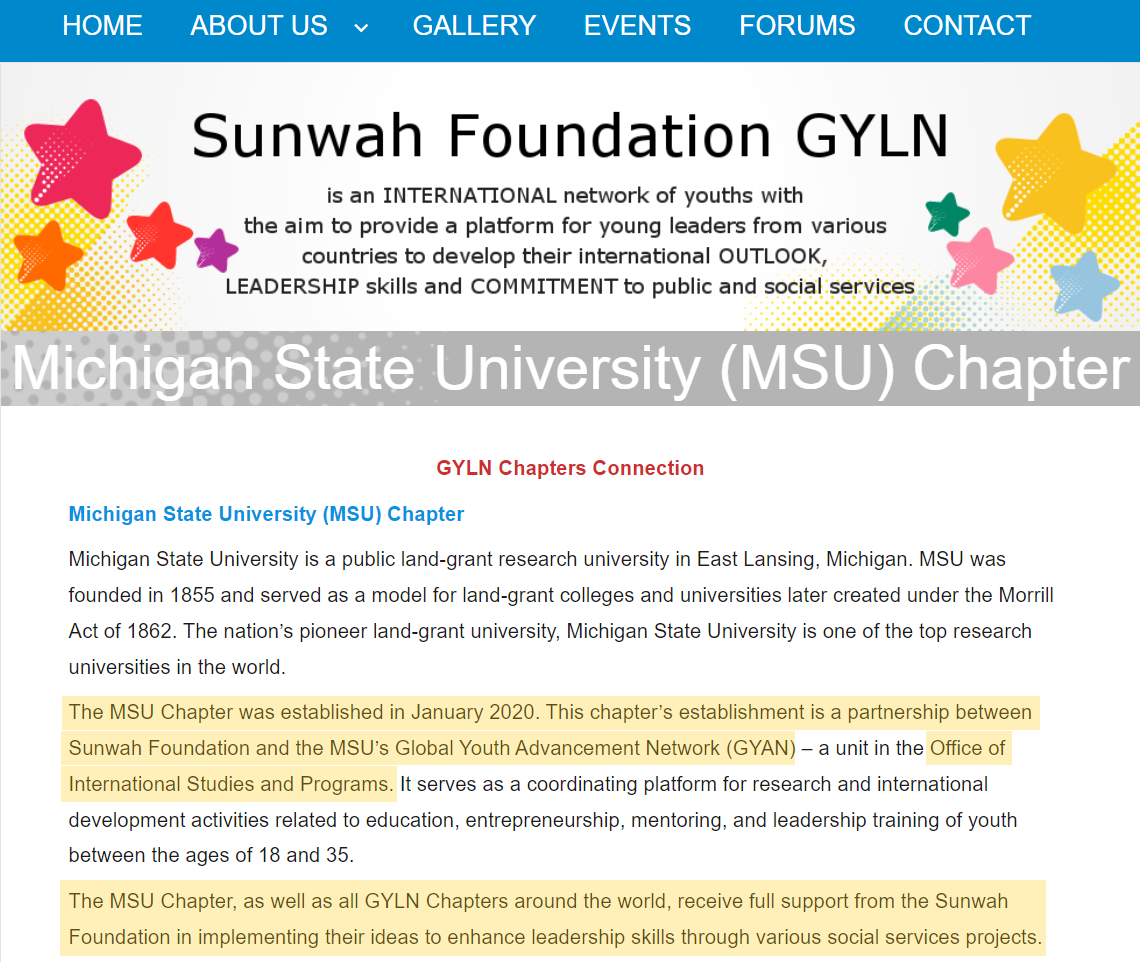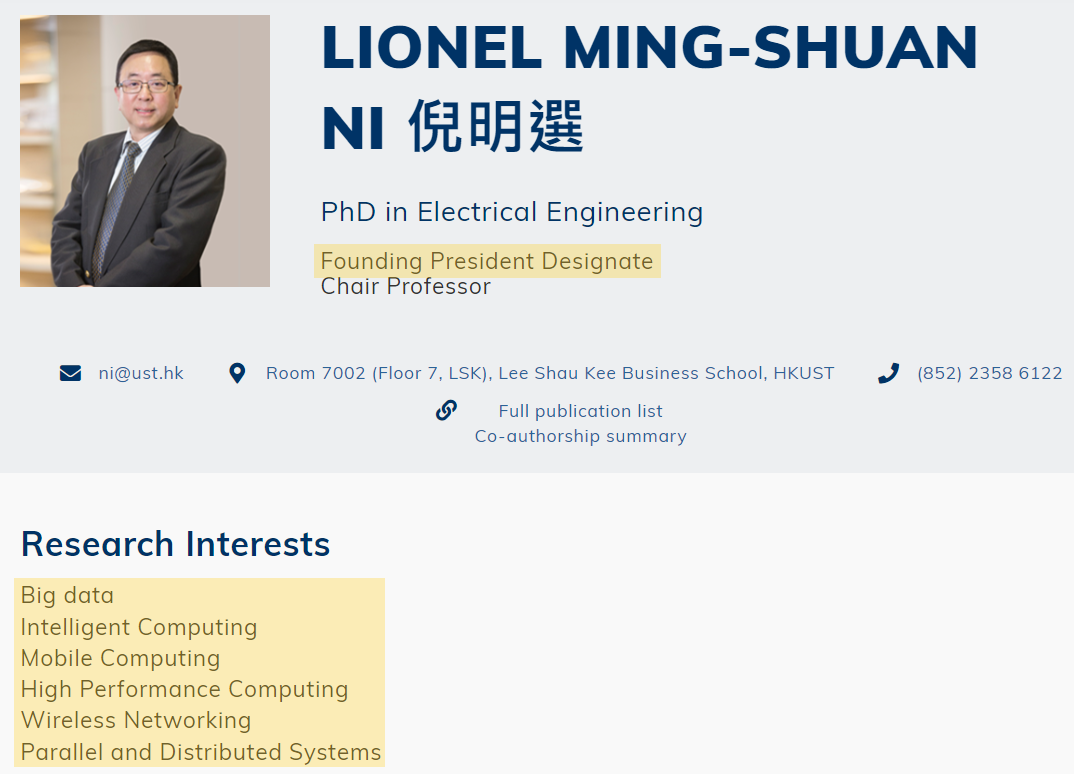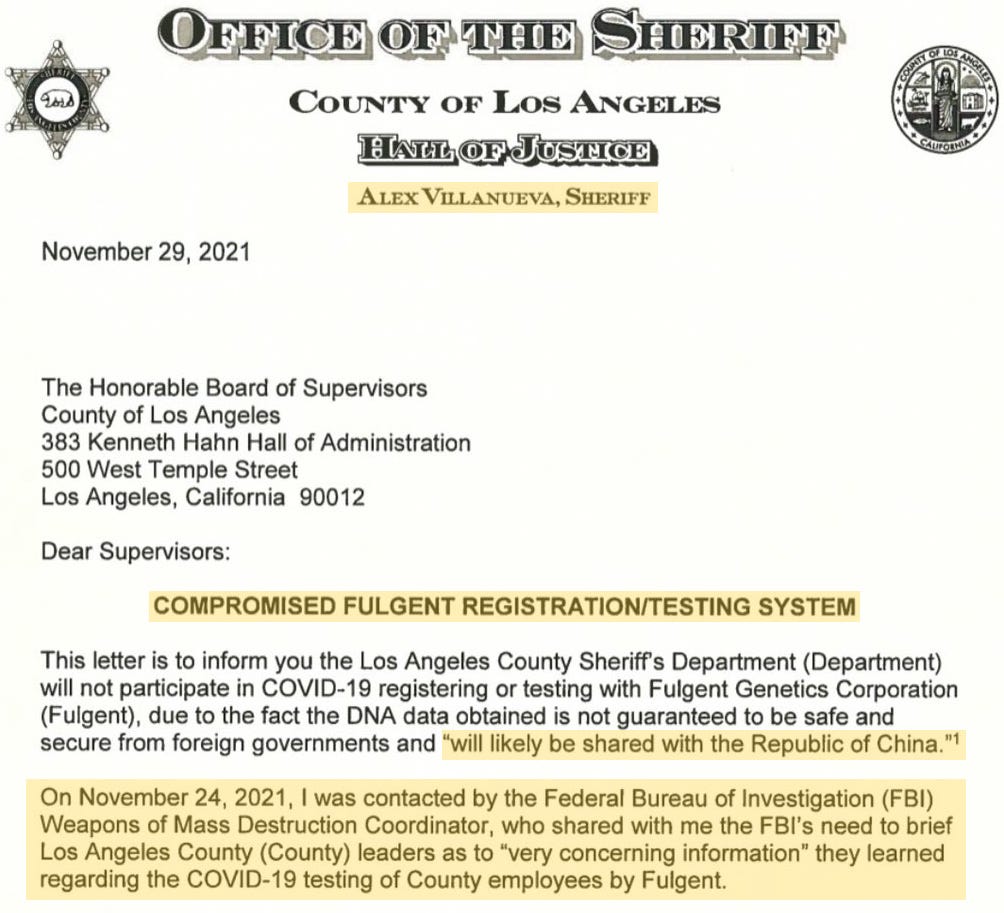It's All True, They're Already Here...The CCP
The case of Eugene Yu and Konnech paint a disturbing portrait of the United States' disregard for its own national sovereignty.
This is an exhaustive list of my past work on the topic at this time:
Aug 17, 2022 — “What Does PollChief Have To Do With Me?”
Aug 20, 2022 — “What Who Knew When: An FBI Story”
Oct 10. 2022 — “Part One: The LJ Konnech-tion”
Oct 12, 2022 — “Part Two: The Man In The Box”
Oct 14, 2022 — “It's Not Just PollChief... It May Be Your Kids, Too”
Oct 23, 2022 — “Konnech, The Cloud, & 3-Letter Tramps”
Nov 7, 2022 — “FULL COVERAGE: Inside The Courtroom With True The Vote - TRANSCRIPTS”
Nov 27, 2022 — “Slap-Together History of MSU's Dept. of Computer Science and Engineering's US-Gov't Research”
Among strenuous news cycles, independent and mainstream media alike have consistently overlooked some of the most chilling aspects of the Konnech data breach and the implications thereof.
Eugene Yu Hardly Built Konnech Himself, At All
Konnech’s origins are intertwined with the Michigan State University Department of Computer Science and Engineering (MSU-CSE).
Lionel Ni was a Professor of Computer Science and Engineering at Michigan State University from 1989 until 2003, and was among the first batch of China’s initial Thousand Talents Program / 千人计划. He was the Program Director of the Microelectronic Systems Architecture Program with the National Science Foundation in Arlington, Virginia in the mid-1990’s.
Eugene Yu began his college education at Zhejiang University in 1978, a long-time staple for talent recruitment through China’s programs like the “Thousand Talents.”
After serving as a Chief Technology Officer in Maryland for a year, Lionel Ni began a company through his wife that transitioned into establishing Okemos, Michigan-based CC&T Technologies.
CC&T updated their business filings in 2000, concurrent with Lionel Ni’s creation of Interstellar (Hangzhou) Network Technology, also known by its English pseudonym, eBanswers.
It was a Mainland-China Electronic Customer Relationship Management (e-CRM) platform for healthcare, education, and government customers, just like its U.S. counterpart, Konnech.
Lionel Ni developed, while CC&T Technologies marketed and Zhuhai Sreijie Network Engineering Service (3Jet E&S) manufactured, a product called the EMIP-1 Internet Emulator.
It was used by the Chinese government, and was manufactured exclusively in Mainland China, while eBanswers maintained a “R&D facility in Michigan, USA.”
Michigan State
The EMIP-1 was co-opted to Eugene Yu’s products (LJ Connection) during a Lionel Ni NSF-funded research project at Michigan State called EMPOWER which utilized the precise technology provided by the device.
Upon Lionel Ni’s departure from MSU in 2002-2003, Eugene Yu’s start-up 2001 venture rebranded into Konnech.
Lionel Ni left the U.S. full time for Hong Kong University of Science and Technology Department of Computer Science and Engineering (HKUST-CSE) to serve as Head Professor in 2002, but he and Eugene Yu continued working together through 2005.
In 2004, Lionel Ni assumed the roles of Overseas Assessor and Guest Research Fellow of the Chinese Academy of Sciences in 2004, Director of HKUST China Ministry of Education/Microsoft Research Asia IT Key Lab in 2004, Guest Professor at Fudan University in 2004, and Honorary President of the South China Institute of Software Engineering in 2004.
Sun Wah Group/Sun Wah Foundation
As Lionel Ni began his new positions in research talent pipelines, Michigan State was awarded a $5M grant from a Hong Kong foundation called Sun Wah Group, or Xinhua Group (新华集团).
President of the group, Dr. Jonathan Choi (Dr. Cai Guan-shen - 蔡冠深博士), became Chairman of the group in 1976. He was the Economic Advisor to the President of the Chinese Academy of Sciences in 1998, and sat on the Board of Directors at Lionel Ni’s new job.
Dr. Cai Guanshen was a member of the 13th National Council of the Chinese People’s Political Consultative Conference - the steering body of the entire Chinese government.
The 14th Council just convened this past week (of March 5th, 2023).

Chinese Academy of Sciences
The President of the Chinese Academy of Sciences urged Dr. Cai (Choi) to leverage newfound entrepreneurship with his positions.

Dr. Cai Guan-shen was also on the Board of Directors at Fudan University, Nanjing University, and Lionel Ni’s Hong Kong University of Science and Technology.
He was also an adviser to the Chinese Economic Research Center at Peking University — notorious for their close ties with the People’s Liberation Army’s nuclear program.
The Chinese Ministry of Science and Technology and Xinhua (Sun Wah) Technology also established the non-governmental organization, “China-India Software Association” in 2003.
When MSU College of Education’s Dr. Yong Zhao was awarded the grant in 2004, Lionel Ni had well-established Interstellar Hangzhou, or eBanswers, to facilitate medical, government, and personal data management. By their nature, Konnech’s products have always been designed to connect with, sort, and store data.
While Ni was also spearheading cloud and advanced computing research for PRC programs, Dr. Choi and the Sun Wah Group were setting up 3e International School in Beijing in 2004, also known as Sanyi International School.
Alongside 3e International School in China, the Chinese Academy of Sciences’ financial advisor founded two partnerships with Michigan State University in 2004: The US-China Quality Education Research Center and the China-US Advanced Education Research Center.
Eugene Yu and Lionel Ni remained connected through Engino Technologies Corporation, the entirety of which occurred during Ni’s employment with the Chinese Academy of Sciences. Eugene Yu’s mainland company, Jinhua Yulian Network Technology Co. (Jinhua Konnech), was established in November of 2005 at a Chinese Academy of Sciences Technology Park in Zhejiang.
Dr. Jonathan Choi (Cai Guan-shen) was awarded an Honorary Doctor of Humanities degree from Michigan State University in 2005 for his contributions to the university.
Konnech’s K-12 platform SchoolBrief, built in conjunction with their Confucius Institute platform ChineseBrief was deployed in Detroit, Michigan, in 2006.
Eugene Yu, himself, offers confirmation that PollChief, too, was being developed along with these products.
Moving into these next sections, these previous pieces will provide context:
Konnech U.
Class of 2006
Between 2006 and 2021, Michigan State University Department of Computer Science and Engineering (MSU-CSE) was awarded a monstrous number of government-backed, or CCP/PLA-linked grants, gifts, and awards.
This is not all of the research through the department, but all projects and awards listed on the site can be found in another of my articles here.
MSU-CSE received:
Five awards from Microsoft Research (during Lionel Ni’s Directorship in Asia)
Twelve projects from the United States Department of Justice, including the FBI
MSU-CSE logged about nine grants from the National Institutes of Health
Two grants from Intelligence Advanced Research Projects Activity (IARPA)
Defense Advanced Research Projects Agency (DARPA) had two projects; The United States Armed Forces clocked in with 18 grants
and the National Science Foundation may have funded the entire school with a whopping 79 estimated significant grants, gifts, or awards, some of quite considerable contributions.
Nearly all of the funding listed in MSU’s Highlights section was for networking, bio/cybersecurity, genomics, machine learning (different than artificial intelligence), big-data, nanotechnology, social engineering, agriculture/aquatics, or biomedical technologies.
In 2006, Lionel Ni continued as Director of the PRC’s Microsoft Research Lab at HKUST, MSU-CSE received part of a $50,000 gift from Microsoft.
On paper, it was to encourage Internet users to better protect themselves from information-privacy threats and the awardees worked with K-12 students on online safety issues.
In September 2006, Lionel Ni was additionally named the Chief Scientist of the National Basic Research Program of China, or the 973 Program - a major science and research program of the PRC with deep roots to their military.
Yong Zhao was awarded $1.8M for the Confucius Institute in 2006 from the PRC’s HANBAN — National Office of Chinese Language Council International.
In 2007, MSU Professor Anil Jain was awarded a U.S. DOJ’s National Institute of Justice, Army Research Office, and National Science Foundation IUC on Identification Technology Research (CITeR) grants for biometrics research at the MSC-CSE, according to MSU’s website.
Jain would go on to be an integral key to both the U.S. and China during Konnech’s relationship with Michigan State University.
Confucius Institute Executive Director, Yong Zhao was awarded $1.4M for developing Chinese Language video games. This provided a way to keep the door open for the PRC and PLA into the MSU Department of Computer Science and Engineering.
New Era For The CCP
2008
It marked the beginning of a new round of the People’s Republic of China’s “Thousand Talents Program.” It was also the year Eugene Yu copyrighted his datamines BestBrief and PollChief.
In March 2008, Michigan State University filed a U.S. patent (pending), “Private Entity Authentication for Pervasive Computing Environments,” US 12/075,618, March 2008, featuring Lionel Ni as an inventor.
Lionel Ni also left his Chinese Academy of Sciences Overseas Advisor role for bigger shoes, so to speak.
He began as an Affiliate Professor and the Founding Director of the Institute of Advanced Computing and Digital Engineering at the Shenzhen Institute of Advanced Technology of the Chinese Academy of Sciences in January 2008.
Meanwhile in the States, Anil Jain created a system for the FBI to help police to match tattoos to suspects. Michigan State’s 2008 article read:
“This is the reason FBI’s Next Generation Identification system calls for an automatic image retrieval system for scars, marks and tattoos.”
The U.S. Government funded projects several MSU projects in 2008 among a list including for real-time interactive and collaborative cyberinfrastructure of hands-on nanotechnology training, and a U.S. Army TACOM project entitled to develop a network to handle interfaces that would facilitate human interactions with robots.
2009
PollChief.com and the PollChief trademark were registered in early 2009.
Lionel Ni’s future Mainland partner and cloud-focused data company, adone.com was established in Beijing on August 7, 2009. Sun Wah’s 3e (Sanyi) International School was based in Beijing.
Anil Jain accepted a guest professorship at Tsinghua University in Beijing, China, in 2009. It was concurrent with his tenure at Michigan State University and ran through 2012.
In 2009, Anil Jain received funding from the Office of Naval Research. The project was worth approximately $1.4M and was called, Kernel Learning for Fusing Uncertain Information from Multiple Heterogeneous Sources.
MSU-CSE was awarded nine times by the National Science Foundation in 2009. Most dealt with AI, robotics, data collection, and nanotechnology.
Anil Jain received funding from the National Institute of Justice (NIJ) for the project, Face annotation at the macroscale and the microscale: tools, techniques, and applications in forensic identification, in 2009.
MSU-CSE were also awarded a project, Digging into Image Data to Answer Authorship Related Questions, as well as a grant for, CPATH-2: CPACE II: Implementing Constituency-driven Curricular Change that Integrates Computational Thinking Across Engineering Disciplines, from the National Science Foundation in 2009.
2010
This 2010 “Highlight” shows a group a grants from top-level organizations, including the U.S. Military, Dept. of Homeland Security, General Electric, and Cogent Systems.
Cogent Systems was sold on August 30, 2010, and MSU announced the funding with a press release in October. Cogent Systems was owned prior by now-CEO and Chairman of the Board, Ming Hsieh.
Today, Ming Hsieh owns about a 28% stake in a California company called Fulgent Genetics. Fulgent Genetics was the subject of a Chinese Covid-19 personal data-sharing scandal in 2021. One common thread to the Konnech ordeal is that alarm to the potential data breach was raised by the FBI itself.
Alex Liu, Assistant Professor of CSE, and colleagues were awarded a research grant in 2010 from the NSF to develop an understanding of the nature, underlying models, and dynamics of social networks.
Another grant to Alex Liu from the Trustworthy Computing Program of the NSF was for a project to employ proactive approaches to reachability management to help operators design, verify, analyze, troubleshoot, and optimize distributed network security policies.
AbVote was also copyrighted in 2010, and Konnech received its first contract through the Federal Voting Assistance Program and a U.S. DoD proposal the following year.
Meanwhile, in China, Lionel Ni had retooled his company, Interstellar (Hangzhou) Network Technology Co., from eBanswers.com into 56iq.com, a “U.S.-funded” company.
2011
In 2011, Anil Jain and Rong Jin, MSU Professors of Computer Science and Engineering, received a three-year Army Research Office grant for their project entitled Large scale image retrieval.
Jain was also awarded two grants from the FBI Biometric Center of Excellence for the projects entitled, Latent Fingerprint Enhancement, and Detection and reconstruction of Altered Fingerprints.
On August 16, Lionel Ni was an inventor on the patented Methods and System for Determining the Placement of RFID Antennas to Obtain a Readable Region for RFID Tags. He also left his Chief Scientist post at the Chinese Ministry of Education’s 973 Program.
Anil Jain received yet another 2011 grant from the DOJ’s National Institute of Justice for Matching Forensic Sketches to Large Face Image Databases, as well as a grant for a project entitled, Pediatric Fracture Printing: Creating a Science of Statistical Fracture Signature Analysis.
NSF awarded a research grant to study the effects of cross-scale interactions on freshwater ecosystems across space and time. In what appears to be an add-on research program, MSU-CSE later announced another NSF grant for their project entitled “Exploiting Mobility-assisted Collaboration for Adaptive Aquatic Sensor Networks.”
Its goal was to additionally enrich several courses offered in the CSE and ECE departments, and provide opportunities to reach out K-12 students and schools through interactive lectures and participation in a teacher training program at MSU.
This apparent K-12 add-on came ahead of another familiar development in 2012.
In September 2011, Eugene Yu officially filed the PollChief name.
Aside
I’m finding it necessary as I go along to keep reminding myself that all of this research is being performed within our borders, and often by scientists with ties to America’s most formidable geopolitical adversaries.
Scientists with no loyalty to America are obtaining intimate knowledge of our most critical systems, and are being funded with American taxpayer money through these programs — including our own military.
Drs. Ni Ming-shuan and Cai Guan-shen both had their hands on the levers of money, intellectual property, and Chinese military research programs from 2004, and straight through this point in time.
Please be sure to review their resumes.
Moving into these next sections, these previous pieces will provide context:
Slap-Together History of MSU’s Dept. of Computer Science and Engineering’s US-Gov't Research
Kanekoa The Great: U.S. Election Software Company Previously Built Confucius Institute ‘Communication Platform’
Diggersleuth: A dive into a voter software company
The Authority: Chinese Cybersecurity Regulations & The National Security Risks Being Exploited By China.
KAGDrogo: How Michigan Gov. & Universities May Have Enabled Konnech CCP Espionage
More Sun-Light
Stocking The CCP Data Cloud
Michigan State’s distinguished professor Anil Jain remained a guest professor at Tsinghua University in Beijing from June 2009 through June 2012.
2012 was also the year that the Sun Wah Group’s 3e International School, or Sanyi International School in Beijing, entered a partnership with Michigan State University.
About two months after Michigan State University’s re-established partnership with the Sun Wah Group began, Eugene Yu applied for the patent, Device and method for selection of options by motion gestures.
After filing for the patent in 2012, Alex Liu, Associate Professor of Computer Science and Engineering, received a research gift from Lionel Ni’s Microsoft Research for novel authentication schemes for mobile devices such as iPhones and iPads.
“ipetitioner.com” and “plocation.com” domains were created in September of 2012.
Konnech was granted a trademark for ipetitioner in October.
A partner company of Lionel Ni’s, with whom his 56iq.com parent company shared a cloud network, Wuhan Interstellar Interactive Intelligent Technology, was established on October 15, 2012. It is CRM company focused on identity management (centralized record tracking), GPS tracking, security key management, ESG management, biometrics, medical records, government document management, etc.
Eugene Yu attempted to file CNBrief LLC in November of 2012 — reminiscent of ChineseBrief — but was rescinded for a bounced check.
On January 10, 2013, Lionel Ni struck another patent filing with, Transmitting and/or Receiving Data in a Side Channel, while still leading Microsoft Research Asia’s joint-lab with the PRC.
Eugene Yu had his Articles of Organization for CNBrief LLC processed by the end of January 2013.
Alex Liu published a paper in 2013 titled, “Secure Unlocking of Mobile Touch Screen Devices by Simple Gestures – You can see it but you can not do it,” co-authored with another researcher from Microsoft Research.
The U.S. Patent filed previously was granted to Eugene Yu, “Device and method for selection of options by motion gestures,” and trademarks were then issued in August for AbVote and iPetitioner.
Later in 2013, Alex Liu received another research gift from Lionel Ni’s Microsoft Research for research on novel authentication schemes for mobile devices.
Early in 2013, John Weng, Professor of Computer Science and Engineering at Michigan State University, received a research gift from Microsoft Research for autonomous mental development (AMD).
Alex Liu, in 2013, received a three-year research grant from the Secure and Trustworthy Cyberspace Program at NSF. The title of the project was “Semantics Aware Approaches to Automated Reverse Engineering Unknown Application Protocols.”
The project represented the first effort toward developing semantics aware approaches to protocol inference, a fundamental building block of many network security solutions.
Cogent Systems also that year, operated then by Fulgent Genetics CEO, Ming Hsieh, donated a three-year $50,000 annual gift to Anil Jain through MSU, and his research group to support biometrics research.
Sometime between June 27 and August 26, 2013, Michigan State University removed Yong Zhao’s name from their College of Education “Research” page.
Eugene Yu’s CNBrief LLC remained registered, active, and unchanged throughout 2014 while Yu’s Jinhua Yulian Network Technology Co. began developing the network backend for their election servers.

Alex Liu received a three-year research grant from the Computer Systems Research Program with the NSF. The title of the project was called “Behavior Based User Authentication for Mobile Devices.” It was done in collaboration with again, Lionel Ni’s friends at Microsoft Research.
In 2014, The Michigan State University Global Youth Advancement Network was established with the Sun Wah Foundation.
The GYLN employed strict guidelines on membership, and organized with a communistic structure. View those and other reclusive guidelines here.
Konnech and Eugene Yu’s (motion gesture-based) shake-to-vote app called VotEdge had a domain, votedge.com, created in 2014.
In September, Sun Wah Group and Jonathan Choi opened the Fok Ying Tung Research Institute at HKUST, where Lionel Ni had just been named Dean.
In April of 2015, Jinhua Hongzheng Technology Co. was established in Jinhua City, China. The domain “hongzhengtech.cn” was created about three months later.
In October, the rights for Chinese Patent (CN-104618378-A & CN-104618378-B) System and data processing method for network voting of absent electorates were transferred from Jinhua Konnech, Inc., to Jinhua Hongzheng Technology Co., Ltd. (金华鸿正科技有限公司)
Konnech enjoyed a business relationship with the Chinese company who also provides election management systems to a Zhejiang Province government.
Eugene Yu authorized the registration of their Chinese domains with information from his American election company, Konnech. One of those domains, 2dmeeting.com, redirects to the Chinese Mainland domain, 2dmeeting.cn.
2Dmeeting.cn is a subsidiary of Jinhua Hongzheng Technology Co. Ltd.
Prof. Lionel M. Ni assumed office as the Vice Rector (Academic Affairs) of the University of Macau in January 2015 — another place where Dr. Cai Guan-shen’s influence still holds strong.
In 2015, Alex Liu and Amir Khakpour, former Ph.D. student in the Department of Computer Science and Engineering at MSU were issued a patent entitled, Method for Computing Network Reachability. It seems to provide a method of packet transfer between subnetworks within a network.
Alex Liu also received a three-year research grant from the Secure and Trustworthy Cyberspace Program at NSF. Multipath TCP Side Channel Vulnerabilities and Defenses, was in collaboration with Univ. of Iowa Prof. M. Zubair Shafiq, who was Alex Liu’s PhD. student at Michigan State University.
Assistant Professor Xiaoming Liu and Anil Jain’s former PhD. student, Arun Ross, were awarded a NIH R01 grant entitled, Quantitative Molecular and Cellular MRI of Hepatocyte Transplantation.
Alex Liu received a research gift from Google for research on detecting and localizing performance degradation for virtual cellular data services.
Eugene Yu made a series of business openings and closings to close out 2015. Among these was the organization of GY Great Lakes LLC.
“GY” seems to be a clear call to “Global Youth” — the Sun Wah Foundation project that featured its only U.S. chapter at Michigan State University, and that had been so active from 2004 and onward.
Transitioning To An Information [Warfare] Age
Sun Wah Expands Its Footprint
Votem acquired Eugene Yu and Konnech’s product and the business-related materials associated with AbVote very early in 2016. He also joined their board.
Some of the Michigan State University Department of Computer Science and Engineering grants from the National Science Foundation in 2016 included:
Novel evolutionary models and algorithms to connect genomic sequence and phenotypic data
Integrating Domain Knowledge via Interactive Multi-Task Learning, aimed at “machine learning,” or advanced “artificial intelligence”
Unobtrusive Sensing and Motivational Feedback for Family Wellness
A Ford-MSU project aimed to develop a low-cost way to use in-vehicle speakers and microphones into an active sonar [sound monitoring] system to continuously and passively monitor the driver and passengers' respiratory and heart rates.
Extending Verb Semantics with Causality towards Physical World in regards to “human-robot communication”
A Macrosystems Ecology Framework for Continental-Scale Prediction and Understanding of Lakes
Arun Ross and Anil Jain were awarded a three-year NSF grant, intended in part to determine how much privacy a biometric image could have to quantify the amount of private information that can be derived from it.
Nasir Memon (New York University) and Arun Ross (Michigan State University) were awarded a three-year National Science Foundation (NSF) grant for their project entitled, The Master Print: Investigating and Addressing Vulnerabilities in Fingerprint-based Authentication Systems.
This project, funded under the Secure & Trustworthy Cyberspace (SaTC) program, investigated the vulnerabilities of fingerprint systems deployed in consumer electronics such as smartphones.
Anil Jain was elected as a Foreign Fellow of the Indian National Academy of Engineering (INAE). The INAE elects only 5 foreign members each year.
In a 2019 Global Youth Leaders Network “Progress Report”, Michigan State directly stated that the Global Youth Advancement Network (GYAN) was established in 2016. This is a Michigan State-housed arm of the Sun Wah Foundation Global Youth Leaders Network (GYLN) program.
Eugene Yu dissolved GY Great Lakes LLC in late 2016.
Building Out the Big-Data Infrastructure
Moving into 2017, the research behind the Dept. of Computer Science and Engineering made a sharp and noticeable turn in a single direction: Cloud-based, Big Data-driven machine learning and biomedical research.
Some of the notable grants of the year included:
Novel Geometric Algorithms for Certain Data Analysis Problems, to bring fresh ideas to other areas, including machine learning, computer vision, data mining, and bioinformatics.
Large-Scale Information Fusion from Multiple Modalities, centered around artificial intelligence and utilizing a wide scope of data of countless different types.
Arun Ross, Xiaoming Liu and Anil Jain were awarded a 4-year project from IARPA for their proposal, Presentation Attack Detection: Solutions for Fingerprints, Face and Iris Systems.
Alex Liu and his former Ph.D. student, Zubair Shafiq were issued a patent entitled, Cellular Connection Sharing, in collaboration with researchers from AT&T Labs. It seems to describe “mobile hotspot” technology.
The duo were issued another patent entitled, Optimization of Cellular Network Architecture Based on Device Type-Specific Traffic Dynamics, in collaboration with researchers from AT&T Labs. AT&T as a company has been under increasing scrutiny for their dealings in China.
Jiliang Tang, Asst. Prof. of Computer Science and Engineering was awarded an NSF grant entitled, A General Feature Learning Framework for Dynamic Attributed Networks.
Jiliang Tang and Jiayu Zhou were awarded an NSF grant entitled, Unsupervised Feature Selection in the Era of Big Data.
An excerpt of the MSU College of Engineering “Highlight” read:
“It has potential to benefit a number of real-world applications from various disciplines such as Computer Science, Business, Education, Politics, Healthcare and Bioinformatics.”
Dr. Jiayu Zhou, was selected to receive a gift award in the amount of $180,000 from DiDi Research of Xiaoju Science and Technology, Hong Kong, for his research on large-scale machine learning on big traffic data.
Fortifying The Investment
MSU’s Arun Ross was elected Fellow of the International Association of Pattern Recognition (IAPR) and presented the award at their conference in hometown, Beijing, China.
Jiayu Zhou, Assistant Professor of Computer Science and Engineering, received an NSF CAREER award to develop a new curriculum to incorporate research into classrooms and provide students from under-represented groups with opportunities to participate in AI research.
“Arun Ross…was an invited speaker at the NATO Advanced Research Workshop on Identity and Security in Lausanne, Switzerland.
The event, conducted from July 10 - 12, 2018, featured international experts in policing, border security, cybersecurity, counter-terrorism, asylum policy and identity management.
Ross discussed the impact of biometric technology on personal privacy, and presented ways in which the technology could be enhanced to impart privacy to biometric data such as face, fingerprint and iris images.
He also discussed the ethics of collecting and sharing biometric data across organizations…The delegates also discussed ways to reliably determine the identity of an individual in the wake of the recent migrant crisis.” - cse.msu.edu
in 2018, Dr. Guan-Hua Tu and Dr. Jiliang Tang were awarded a $499,976 NSF grant to conduct a comprehensive investigation of side-channel attacks against mobile users by collecting, labeling, mining, and analyzing mobile users’ encrypted mobile data.
Anchoring Data Transfer Networks
Beginning in 2019, Lionel Ni was appointed Provost of Hong Kong University of Science and Technology, where Sun Wah Chairman and CEO, Dr. Jonathan Choi, serves on the Board of Directors.
University Distinguished Professor of Computer Science and Engineering Anil Jain of Michigan State University was elected a Foreign Member of the Chinese Academy of Sciences (CAS). He was selected for his scientific achievements and contributions to promoting the development of science and technology in China.
Dr. Jonathan Choi, CEO of the Sun Wah Group is also the financial advisor to the President of the CAS, where Lionel Ni also served in multiple roles.
On April 3, 2019, a company under Lionel Ni’s corporate umbrella called Interstellar Cloud (Wuhan) Technology Co., Ltd. was launched in Wuhan, China. The company specializes in AI management of sensitive personal records through Chinese medical and governmental bodies.
This coincides with a CCP directive that began consolidating all of Wuhan’s cloud services into a “One Cloud” program.
In addition to a laundry list of biomolecular, nanotechnology, and genomic research that flooded the MSU campus, there were many other strides toward big-data initiatives.
Jiliang Tang and other MSU colleagues were also awarded an NSF grant entitled Intelligent Social Network Interventions to Augment Human Cognition for Bolstered Interdisciplinary Interactions in Project Teams.
Arun Ross was awarded a grant from the NSF titled, Collaborative Research: Converging Genomics, Phenomics, and Environments Using Interpretable Machine Learning Models. It dealt with AI in genomics.
“Machine learning (ML) methods are better able to cope with complex biological systems and can incorporate genetic information, but require a lot of work to obtain and prepare the data; further, the prediction models themselves can be hard to interpret. This project will solve these problems by harnessing cyberinfrastructure-enabled computing and data storage, designing faster techniques for preparing biological data for ML, and developing interactive visualizations to better understand the prediction models and their outputs. If successful, these integrative advances will immediately, responsibly, and transparently inform policy to maximize resources.”
Michigan State University was approved by the National Science Foundation as a University Site of CITeR - the Center for Identification Technology Research.
CITeR’s mission is to work in partnership with government and industry stakeholders to advance the state of the art in human identification technology through coordinated university research.
Current CITeR affiliates include Northrop Grumman, Qualcomm, Department of Homeland Security, Federal Bureau of Investigation, Veridium, Aware, Inc., HID Global and IDEMIA to name a few. The fees paid by the affiliates are used to fund and develop the research and educational portfolio of CITeR.
On August 30, 2019, Eugene Yu’s wife, Donna Wang, Director of Nanomedicine and Molecular Intervention, and Professor of Medicine in the Neuroscience, as well as the Cell and Molecular Biology Program at Michigan State University, filed to organize a company called 3ed Hub LLC.
Around one week later, the FBI ITSELF was on-site at Michigan State for an “Academic Alliance Conference.”
2020: The Moment Of Truth-Is-What-You-Make-It
CAS member Anil Jain and Jiayu Zhou were awarded an Office of Naval Research grant titled “Deep Learning: Integrating Domain Knowledge and Interpretability.”
Pang-Ning Tan and Lionel Ni’s old research partner, Abdol-Hossein Esfahanian, were awarded a grant from the NSF and Amazon, titled “FAI: Fairness-Aware Algorithms for Network Analysis.”
“This research fills a major gap in current research on fairness in AI, which has primarily focused on independent and identically distributed (i.i.d.) data…
…the link structure of the network often contains information about the protected attributes (e.g., gender, race, or sexual orientation), and thus, must be taken into consideration in the design of fairness-aware machine learning algorithms…”
Xiaoming Liu and Anil Jain were awarded a grant for a project entitled “Manipulated Face Detection” from Facebook.
Vishnu Boddeti received a Facebook Research Award to automatically design coevolving learning agents, i.e., either cooperative or competing, to automatically identify both system vulnerabilities and solutions to mitigate them.
Xiaoming Liu and Sijia Liu were awarded a grant from DARPA to build a generalizable and scalable learning system for reverse engineering of deception (RED), which can automatically recover and index attack toolchain signatures in both machine-centric and human-centric attack scenarios, with targets to fool machine learning (ML) decisions and human decisions, respectively.
It should come as no surprise the two- and four-year cycles of which the Sun Wah Group would reassert itself through Michigan State. Here they are establishing another new, exclusive chapter of the Global Young Leaders Network.
After all, Eugene Yu’s wife had just opened a company called 3ed Hub — a name that could strike any number of allusions to 3e International School, or other MSU education alliances.
Unprompted Upcoming References Break
Aug 17, 2022 — What Does PollChief Have To Do With Me?
Aug 20, 2022 — What Who Knew When: An FBI Story
Nov 7, 2022 — FULL COVERAGE: Inside The Courtroom With True The Vote - TRANSCRIPTS
Nov 27, 2022 — Slap-Together History of MSU's Dept. of Computer Science and Engineering's US-Gov't Research
The End of…Something
The CIA hacked the Wuhan Institute of Virology’s cloud services in early 2021, as I covered in, What Who Knew When: An FBI Story.
Lionel Ni was awarded an entire university in April of 2021 for his allegiance to the CCP. The Hong Kong University of Science and Technology-Guangzhou (HKUST-GZ) opened in September of 2022.
In 2021, Eugene Yu signed the 3ed Hub LLC annual statement for Donna Wang.
The Federal Bureau of Incapacitation
Catherine Engelbrecht with True The Vote, along with Gregg Phillips and OpSec, had been well-engaged in an open-sourced investigation into election malfeasance in the 2020 general election by the time that Los Angeles County Sheriff Alex Villanueva publicly released a letter regarding Cogent Systems CEO, Ming Hsieh’s Fulgent Genetics.
Phillips and Engelbrecht’s FBI story has been told in parts dating back to early 2022.
The FBI operated with cooperation from True The Vote (TTV) and OpSec for months until the spring of 2022, as a precise date was a bit foggy throughout testimony.
Some have interpreted those events to mean, “turned the investigation around on True The Vote.”
During the hearing in Houston federal court for a TRO, Engelbrecht and Phillips both eluded or outright mentioned that their activities gathered, “all kinds of election intelligence.”
One informant worked with Phillips years before the True The Vote/OpSec investigation that led to questions about Konnech. Most of the others had been in contact since sometime in 2021.
This is well within a time-frame for when the most egregious transfers of money, research, intellectual property, and adversarial compromise into our most critical infrastructure to have occurred.
Unironically, the person who was in charge of the local FBI Field Office in 2019 had a background in exactly the type of investigation that this case would sorely need.
Also unironically, he just resigned his recent post as Assistant Director in Charge of the Washington Field Office in Washington, D.C. He oversaw the Gretchen Witmer plot, January 6th, Mar-a-Lago, and now (allegedly) the Konnech investigation failure.
Phillips and others that were in attendance at the event, itself, now allege FBI infiltration into the event, as well as into the collective’s information dissemination effort that commenced thereafter.
Attorney General Merrick Garland has made it abundantly clear time, and time over that the DOJ speaks through their investigations and their legal filings. He and FBI Director Christopher Wray have also stated, that they cannot, and will not comment on ongoing investigations.
The FBI waived agency protection over the “confidential” status of the third unnamed informant…because the investigation is over?
The FBI also will not comment in any capacity on the matter…because the investigation isn’t over?
That leaves the option of speaking through their legal filings? Where are those? Are there things under seal?
The FBI knows that Ming Hsieh’s Fulgent Covid-19 genetic data, uploaded daily (to China), was compromised (because it’s in China).
Does that mean biometric data with Cogent is equally as compromised?
If so, would that then mean the FBI, DOJ, U.S. Military, Facebook, Amazon, Google, NSF projects since Konnech’s involvement are all susceptible to Chinese tampering?
How much of our technology do the Chinese government or military have a direct line into?
How much of it are they able to tamper with?
Remember SolarWinds?
Eugene Yu dissolved 3ed Hub LLC immediately as Wuhan Interstellar Interactive Network Technology was also filed, and just as the Wuhan “One Cloud” project was completed — remarkably on schedule for a six-month build.
Is it too much to imagine Konnech’s “super-administrators” having access to anything that at any point otherwise also touched Konnech’s software or the networks or servers they connected to? How many of those are hardwired into, and does Konnech interact with at the Michigan State Universtity Innovation Center?
Was Michigan State University considered a “client” of Konnech?











